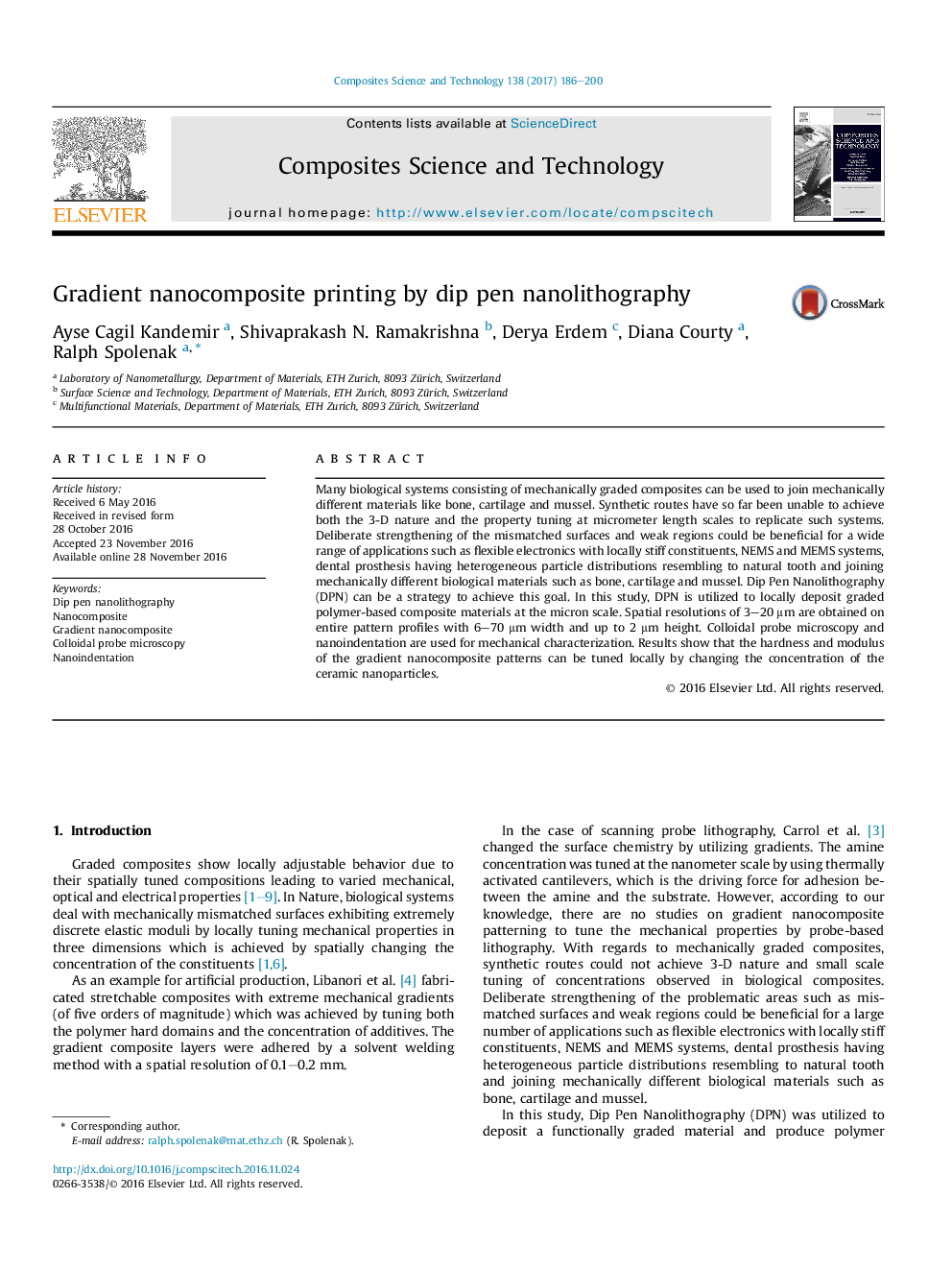| Article ID | Journal | Published Year | Pages | File Type |
|---|---|---|---|---|
| 5022401 | Composites Science and Technology | 2017 | 15 Pages |
Many biological systems consisting of mechanically graded composites can be used to join mechanically different materials like bone, cartilage and mussel. Synthetic routes have so far been unable to achieve both the 3-D nature and the property tuning at micrometer length scales to replicate such systems. Deliberate strengthening of the mismatched surfaces and weak regions could be beneficial for a wide range of applications such as flexible electronics with locally stiff constituents, NEMS and MEMS systems, dental prosthesis having heterogeneous particle distributions resembling to natural tooth and joining mechanically different biological materials such as bone, cartilage and mussel. Dip Pen Nanolithography (DPN) can be a strategy to achieve this goal. In this study, DPN is utilized to locally deposit graded polymer-based composite materials at the micron scale. Spatial resolutions of 3-20 μm are obtained on entire pattern profiles with 6-70 μm width and up to 2 μm height. Colloidal probe microscopy and nanoindentation are used for mechanical characterization. Results show that the hardness and modulus of the gradient nanocomposite patterns can be tuned locally by changing the concentration of the ceramic nanoparticles.
